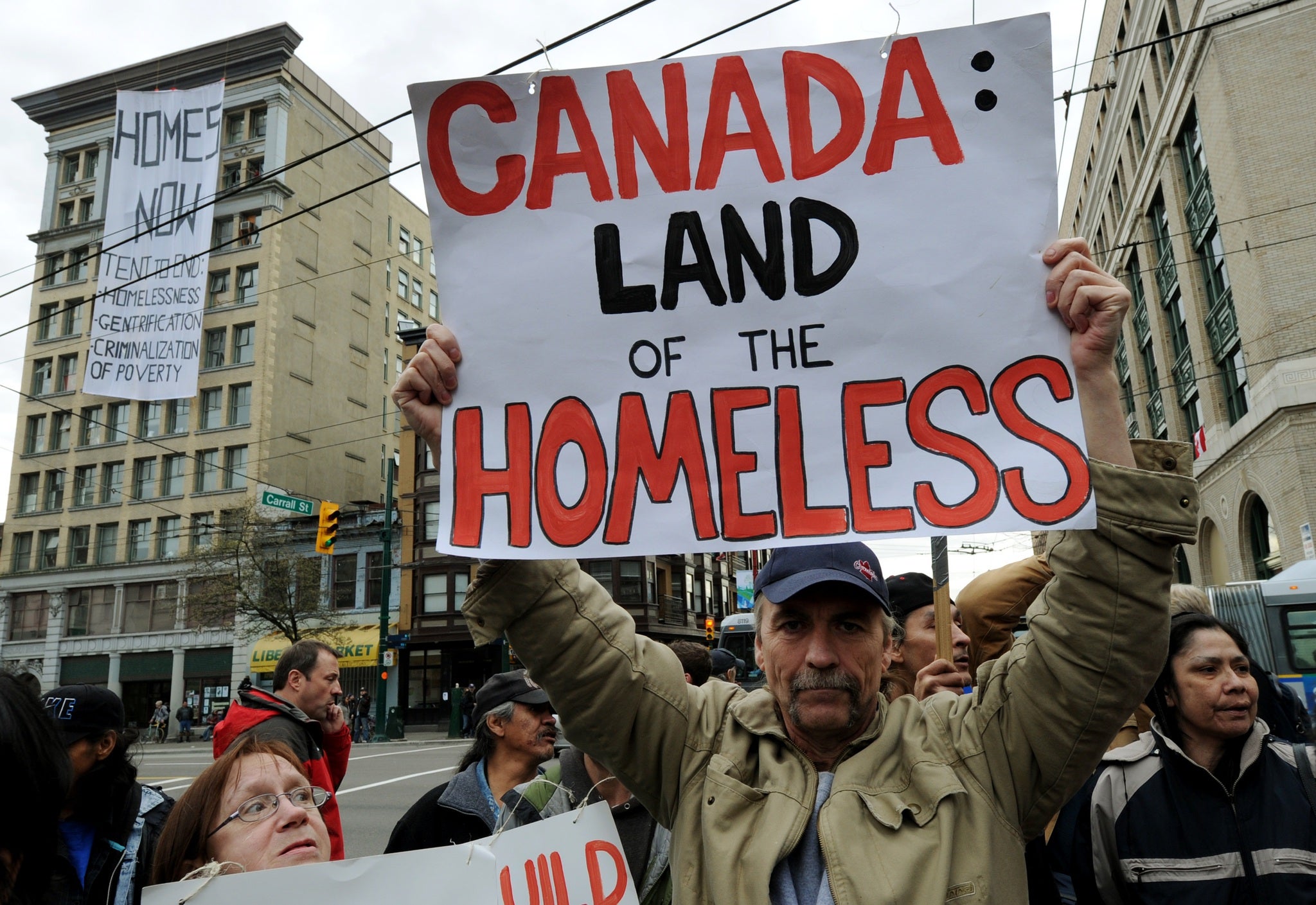Pioneering Vancouver scheme 'helps 500 homeless transform their lives' study finds
The Vancouver At Home initiative gave homeless people apartments around the city and access to health workers

A group of homeless people who were taken from emergency shelters and correctional facilities to be housed in apartments scattered across Vancouver in a new initiative, have transformed their lives, become less dependent on the state and have made fewer criminal offences, a government-funded organisation has said.
A five-year study by the Mental Health Commission of Canada found that 500 participants, who left a life on the streets or a cycle of intermittent stays in hospitals or shelters, responded positively to the Vancouver At Home project.
The scheme offered apartments in 22 different neighbourhoods in the city, as well as access to support staff.
A final report by the Commission said that acceptance from landlords and private tenants in the mixed social housing was a “hugely powerful part” of the participants’ transformation.
“Historically, projects in Vancouver that have tried to house people who were formerly homeless or experiencing mental illnesses in neighbourhoods outside of the Downtown Eastside have met opposition and sentiments of ‘not in my backyard’,” said the report.
“That has not been the case for [Vancouver At Home] participants, who have successfully joined neighbourhoods scattered throughout the City of Vancouver.”
All of the participants had some form of mental illness, while 58 per cent experienced substance abuse and 24 per cent were dependent on alcohol. Fifty-two per cent had a psychotic illness while 40 per cent suffered with depression.
The Downtown Eastside of Vancouver is an area battling “drug use, crime, homelessness, housing issues, unemployment and loss of business in the community,” the City of Vancouver says.
The report adds: “In contrast to the affluence and physical beauty of its surroundings, Vancouver’s Downtown Eastside (DTES) neighbourhood is among Canada’s poorest communities.
“The homeless population in Vancouver is concentrated in the DTES, where the city’s lowest cost rental units exist alongside a large but fragmented array of resources, including shelters, drop-in centres, and community health services.”
The report also found that there was a significant economic benefit to the scheme – with a saving of CAD$8.55 – in subsequent social services – with every CAD10 initially laid out to fund it.
As reported by the Vancouver Sun, the 500 participants, in comparison with a control group of 200 who were not given housing, had a more stable life, committed fewer crimes and relied less on social services.
The research project is being conducted in Vancouver, Winnipeg, Toronto, Montreal and Moncton, with each city trialing its own unique response to the challenge of homelessness.
The report has led homelessness charity Crisis to call on the British government to tackle its own housing problem.
Leslie Morphy, Chief Executive of Crisis, told The Independent: “Every homeless person should be able to get help with housing. Yet far too many homeless people in England are being turned away by their councils because they are not considered a priority for housing. Rough sleeping has risen considerably – by 36 per cent in three years.
“Crisis wants changes to the law to make sure that everyone who needs help with housing receives it. Councils too must do more to help all those who are homeless and not hide behind legal distinctions.”
Subscribe to Independent Premium to bookmark this article
Want to bookmark your favourite articles and stories to read or reference later? Start your Independent Premium subscription today.

Join our commenting forum
Join thought-provoking conversations, follow other Independent readers and see their replies